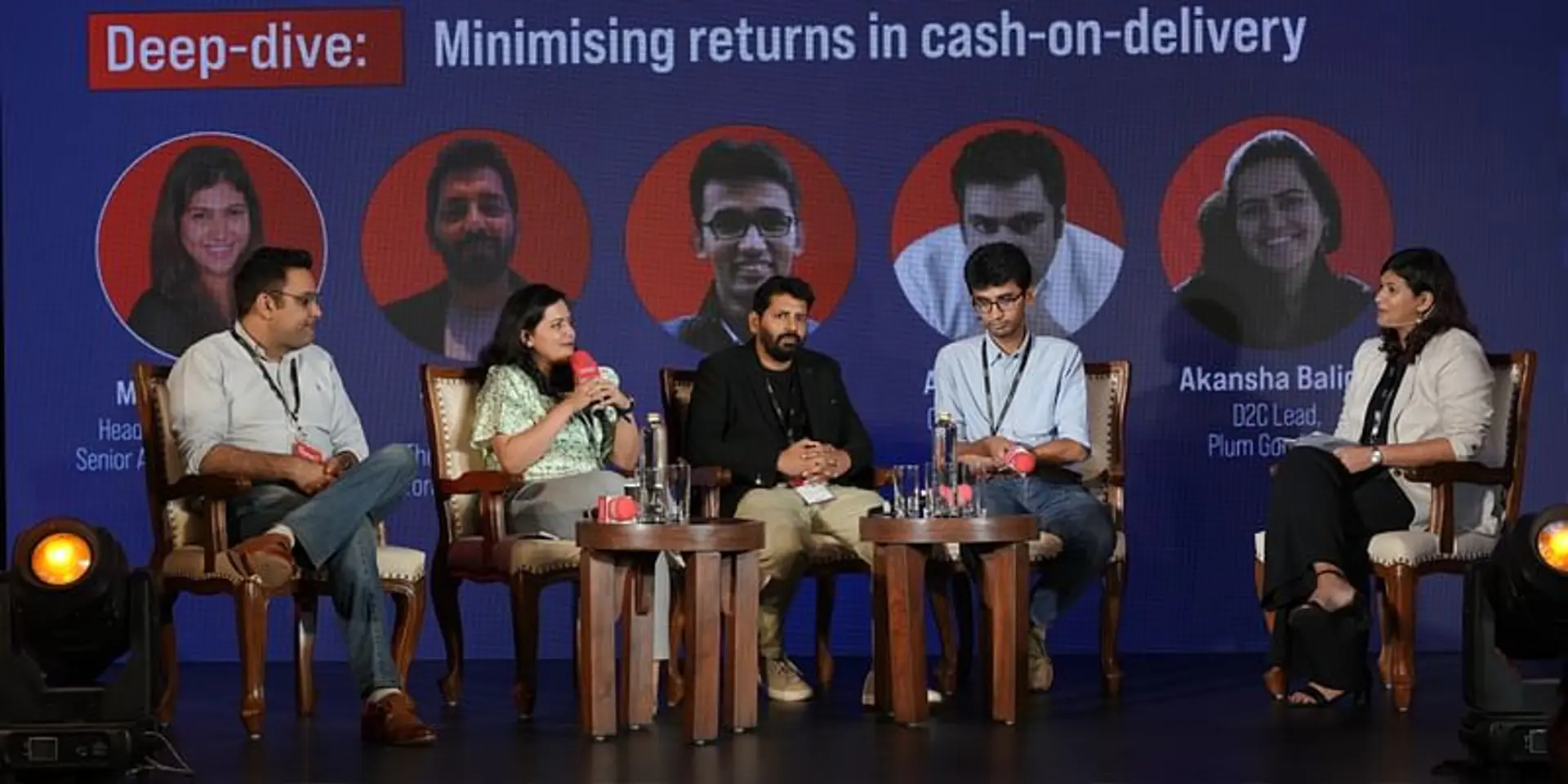Diving deep into COD: D2C expert strategies to reduce returns
At TechSparks Mumbai's D2C Playbook track, industry experts convened to discuss minimising COD returns, illuminating ecommerce complexities and opportunities.
The complexities surrounding Cash-on-Delivery (COD) transactions are a familiar terrain for ecommerce players in India. At TechSparks Mumbai, as part of the D2C Playbook track, a panel of industry experts convened to discuss strategies for minimising returns associated with COD, shedding light on the complexities and opportunities within the ecommerce landscape.
Arush Chopra, CEO and Co-founder, , set the stage by addressing the inherent challenges of COD transactions. Chopra said “I want to begin by saying that we are not fans of COD. The mandate should be to reduce COD first, and then the return rates will take care of themselves." According to him, minimising COD transactions not only streamlines operations but also alleviates the burden of handling returns, ultimately enhancing profitability and customer satisfaction.
Akansha Baliga, D2C Lead, , shared insights into their successful approach to reducing COD orders and mitigating returns. Plum Goodness implemented minimal handling charges for COD transactions, incentivising customers to opt for prepaid orders. This led to a significant drop in return rates, from 40-45% to a more manageable 20%. This strategic shift not only improved Plum Goodness' bottom line but also enhanced the overall shopping experience for customers.
Sanil Jain, Founder, The Better Shop, shed light on the evolving COD landscape, particularly in urban areas. “As urban consumers increasingly shift to online transactions, our focus on serving top urban markets has helped reduce COD transactions to less than 20%. However, COD still poses challenges, with Return-to-Origin (RTO) rates nearly five times higher than prepaid orders, averaging around 15-20%,” Jain shared. He believes in offering exceptional customer experiences to instill trust in the brand that will in turn, reduce reliance on COD transactions.
Nikhil Vij, Head of Product, , underscored the pivotal role of logistics providers in optimising COD operations.
“Approximately 60% of orders in ecommerce are Cash-on-Delivery (COD), which presents a significant challenge for logistics providers. However, we recognise the necessity of making COD work effectively for brands. By implementing strategies such as introducing small COD handling charges, we aim to gauge customer intent and optimise COD operations accordingly,” Vij pointed out.
Despite the higher return rates associated with COD compared to prepaid orders, Delhivery leverages internal signals to ensure efficient delivery and minimise RTO incidents. Timely delivery is crucial in reducing RTO rates, as even a one-day delay can lead to a spike in returns. “Therefore, our focus remains on leveraging actionable intelligence to empower brands and enhance the overall COD experience for customers,” he shared.
By differentiating between high and low RTO probability COD orders, Delhivery empowers ecommerce brands to implement targeted interventions, such as verification calls or incentivising prepaid transactions, thereby minimising returns and enhancing operational efficiency.
"Return-to-Origin (RTO) poses the greatest challenge in delivery operations," explained Vij, highlighting its significance in guiding D2C brands' decisions on choosing the right logistics partner. He emphasises the criticality of meticulous planning within their network, spanning from technology infrastructure to incentivising stakeholders, all aimed at achieving the lowest possible RTO rates.
Vij further elaborated, "Filtering out the customer's intent to receive the order is paramount." This distinction informs operational strategies, enabling tailored approaches for different customer segments. Measures such as charging convenience fees for COD orders or verifying intent before shipping are essential interventions in this process, aligning with client and provider objectives to ensure successful deliveries.
The discussion emphasized flexibility and innovation in addressing COD challenges. Vij highlighted Delhivery's API-first approach, which allows D2C brands to experiment with innovative solutions tailored to their unique workflows. By providing the infrastructure for order cancellations, converting COD to prepaid midway through transit, and implementing other interventions, Delhivery enables brands to optimise their COD operations and deliver superior customer experiences.
By fostering trust, leveraging data insights, and embracing innovation, D2C brands and logistics providers can collaborate to minimise returns and enhance customer satisfaction. As ecommerce continues to thrive in India, strategic approaches to managing COD transactions will be vital to driving sustainable growth and success in the digital marketplace.








